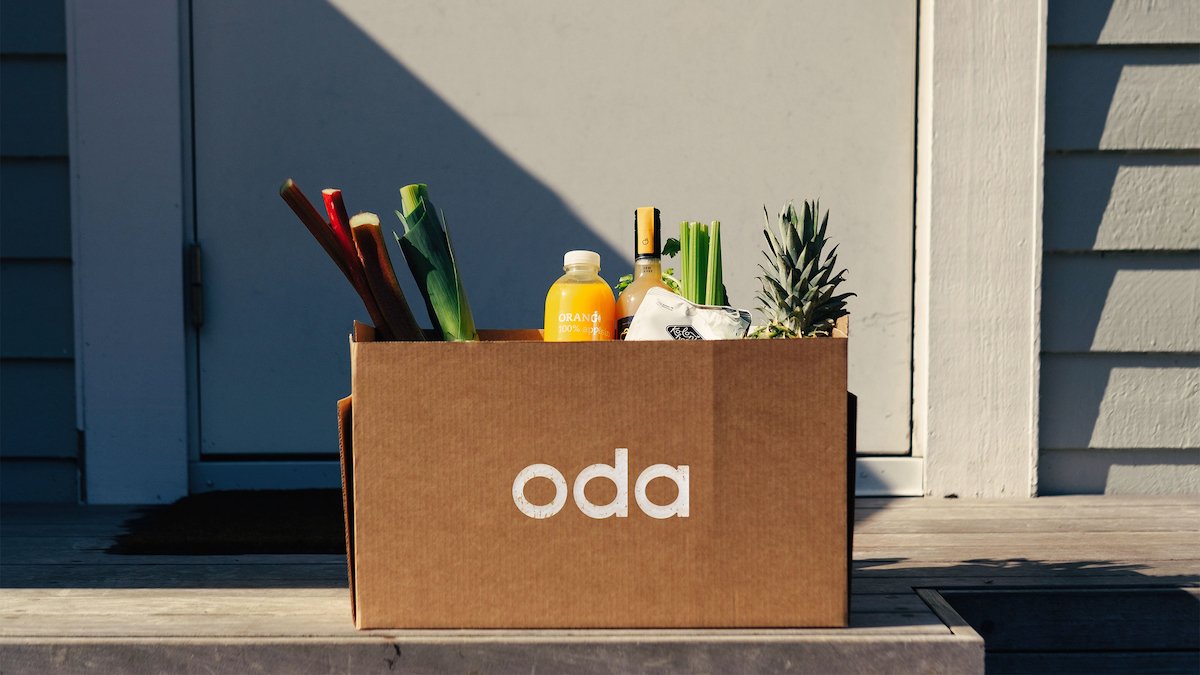It’s not just instant-delivery startups that are struggling.
Oda, the Norway-based online supermarket delivery startup, has confirmed layoffs of 150 jobs as it drastically scales back its expansion ambitions to focus on just two markets, its homebase and Sweden, the homebase of Mathem, an online grocery that Oda merged with last year.
Oda, which has raised hundreds of millions of dollars and was once valued as high as
$900 million in a round led by SoftBank in its Vision Fund investment heyday, now says its aim is to become profitable in the two countries sometime next year.
Oda’s retreat mirrors what we’ve seen play out in the instant grocery delivery space, where a number of startups have either sold down or been acquired for pennies on each dollar raised as they have struggled to get the unit economics to work amid sluggish growth. That all appeared to come to a major head in April, when Getir, the startup out of Turkey that raised $2.3 billion, announced layoffs and a retreat to its home market in pursuit of getting out of the red.
“Grocery is the largest category in retail, but even the most capable organizations in the world have struggled to find an online model that works. Online grocery is hard — complex orders with perishable items and a multi-temperature supply chain in a highly price sensitive category,” Oda’s CEO, Chris Poad, wrote on LinkedIn last week (before the layoffs were announced).
Poad’s very presence at the company is part of its efforts to get out of that “struggle”.
With past experience at Amazon, Tesco and Google, Poad only joined the company in April himself, taking over from co-founder Karl Munthe-Kaas. Munthe-Kaas, meanwhile, left after he was reportedly asked by the board to step aside due to what Norwegian media described as Oda’s “foreign fiasco.”
In short, Oda, riding on hundreds of millions in funding and the pandemic boom for online grocery delivery, had big ambitions to scale across the Nordics and northern Europe. But in 2023, the company announced plans to end its retail operations in Finland after just one year; Germany soon followed.
Oda may have been retrenching its own-brand expansions, but it was also consolidating with other, existing grocery retailers: its merger with Sweden’s Mathem came later in 2023 – a deal that Oda claimed would make it the largest online grocery retailer in the Nordics with “over NOK 5 billion” ($471 million) in revenue.
Now, Oda’s confirmed its international expansion strategy is postponed.
The company’s state of affairs is a stark reminder of both the exuberance of investors pre-2022, as well as the difficulties that have followed as startups failed to meet growth projections.
Prior to the pandemic, Oda – founded in 2013 – carved out a place for itself as one of the strong regional players in online grocery delivery in Europe. (Others include Ocado out of the U.K., Rohlik in the Czech Republic, Picnic in the Netherlands and Everli in Italy.)
Cue the pandemic and a massive surge of online shopping as people sheltered in place. By 2021, SoftBank, via its Vision Fund, led a $265 million round for the company at a valuation of $900 million. But by late 2022 Oda was raising $151 million at a valuation of $353 million.
Now, based on recent financial reporting from Kinnevik, its largest shareholder, the company’s pre-layoffs value would have been just SEK 2.56 billion, or $245 million.
Layoffs are often one of the signals not just of a company looking to cut costs, but sometimes of one looking to firm up its balance sheet ahead of a fundraise. And that’s what it looks like Oda is trying to do now, based on one report. Local publication e24 says Kinnevik and other existing backers Summa Equity and Verdane are expected to provide the bulk of the NOK600 million ($57 million) Oda is reportedly raising. It is unclear what that will translate to in terms of valuation given the other developments.








